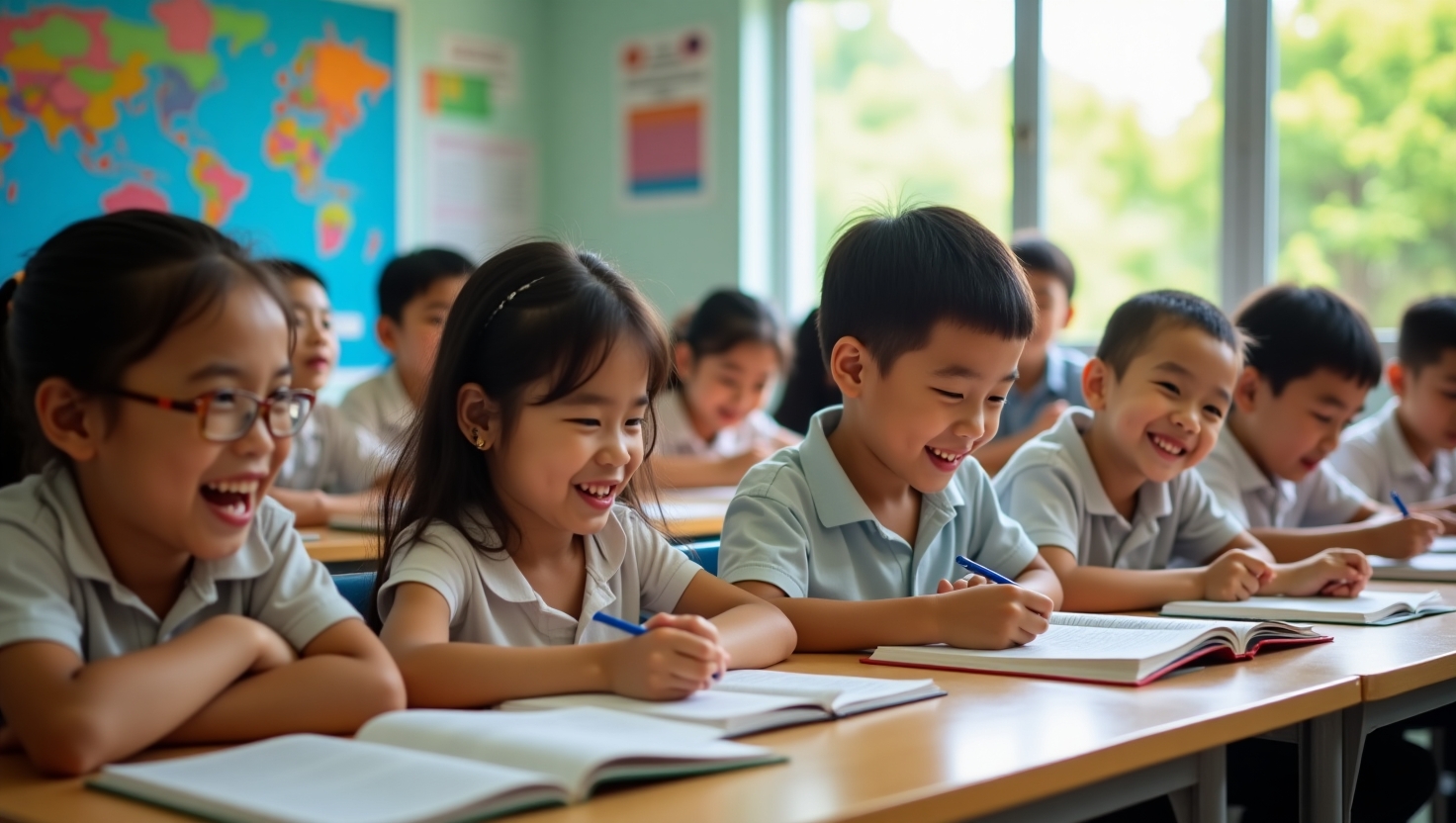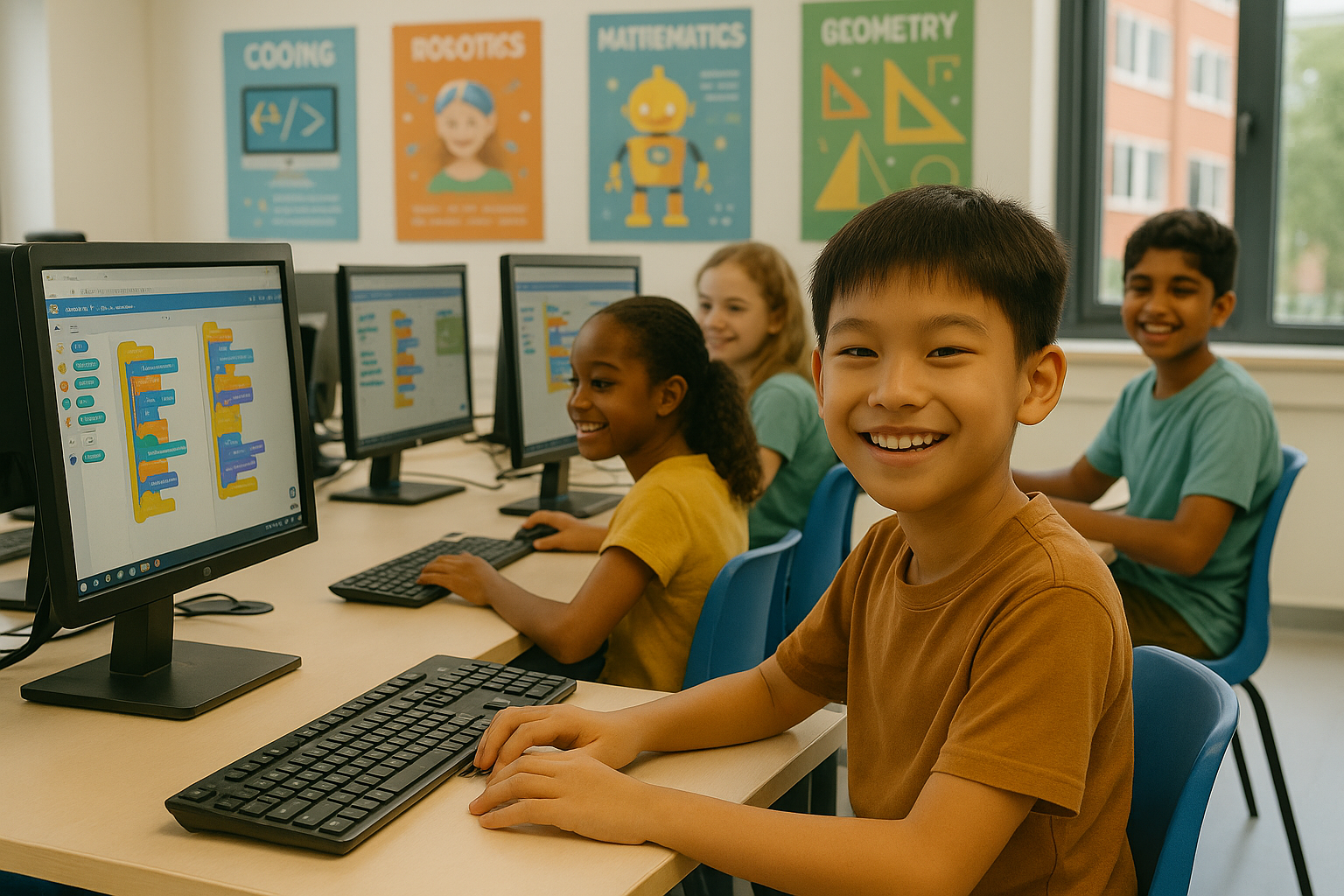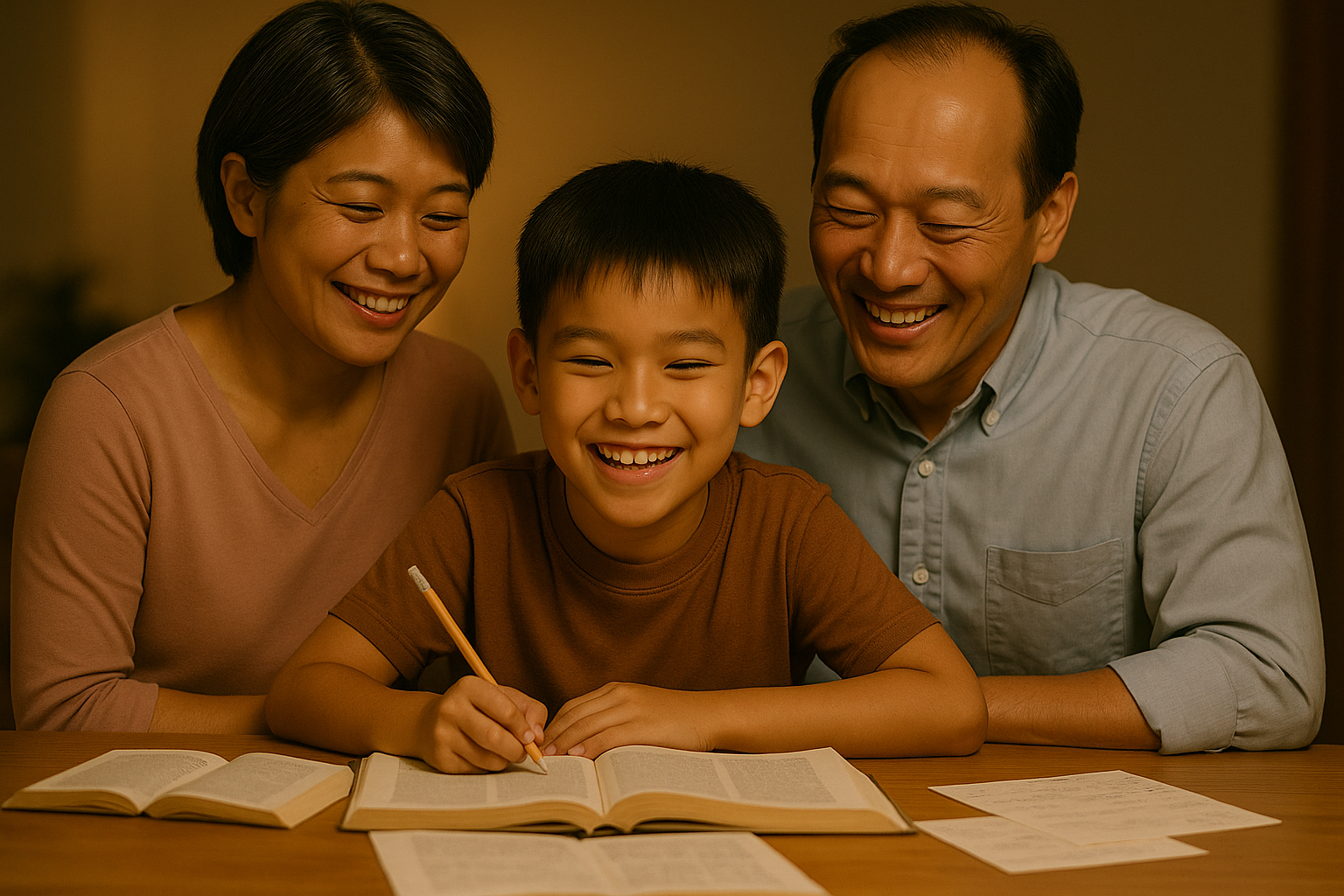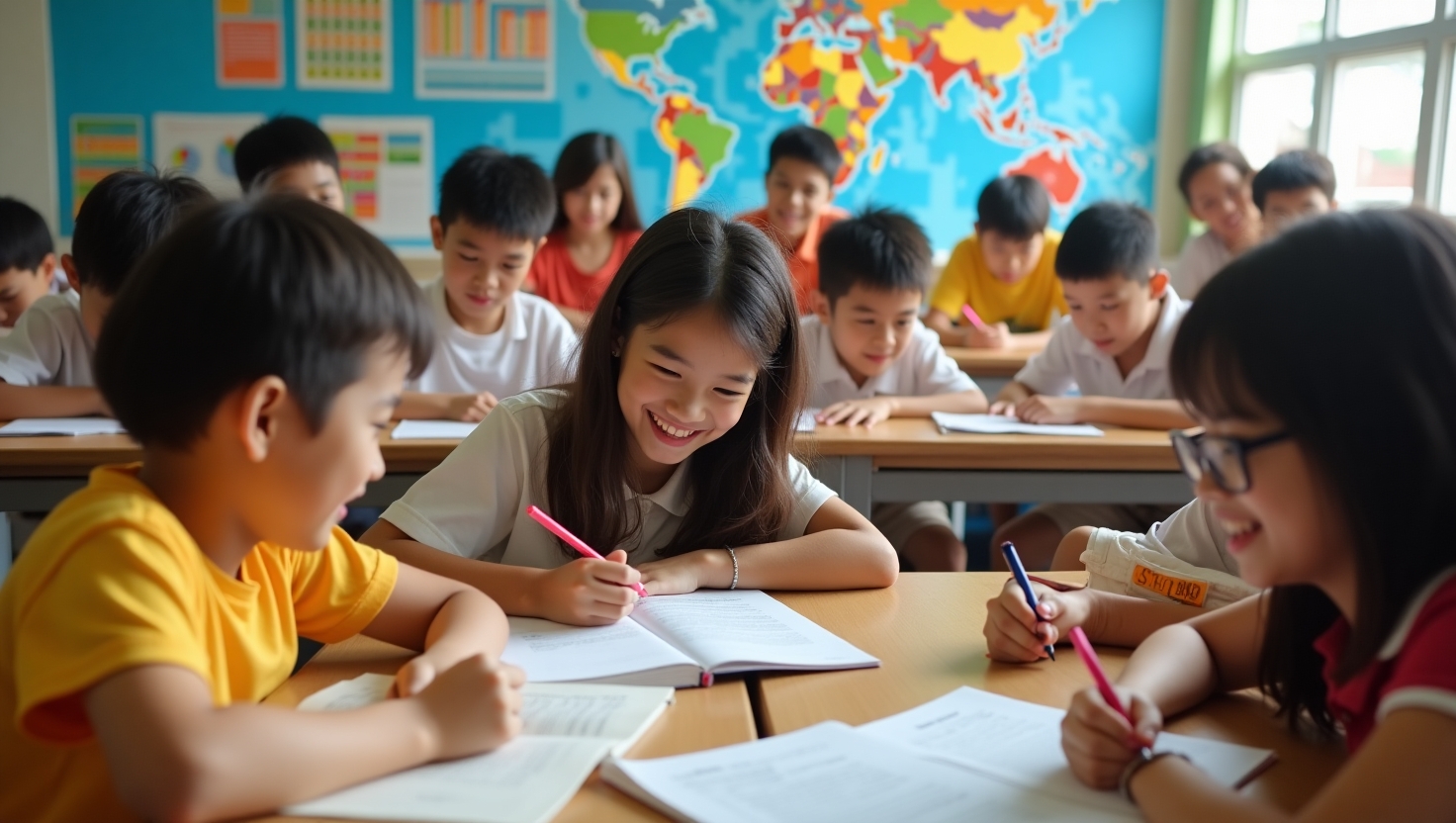Singapore’s education system is known for its structure and academic rigour. The system is evolving to prepare students for an unpredictable future. It used to mean a lot of stress over exams and a focus on knowing things by heart. Now, from the shift to PSLE Achievement Levels to the roll out of AI tools in classrooms, new methods align with global holistic learning trends.
As the system changes today, the focus is shifting away from just studying for tests. It is moving towards a more complete method that values creative thought, digital knowledge, and critical thinking. Digital lessons on Student Learning Space, Subject‑Based Banding pilots, and sustainability projects under the Green Plan are the latest additions. These are ways for parents and teachers to challenge old ways of thinking.
The point of this article is to break down these changes and look at how new reforms, such as improved digital classes, compliance with MOE reports and local pilots, and new ways of scoring the PSLE, affect learning and growth. We’ll explore where Singaporean education’s previous strengths remain untouched, which fresh initiatives are making waves, and—most importantly—what you can do to support your child every step of the way.
By the end, you’ll have practical takeaways to help your child excel in the academic landscape. Let’s dive in.
A Snapshot Of The Traditional Singapore Education Model

To understand the changes made today, it helps to look back at the plans that made the Singaporean education system successful.
- Structured Curriculum & High Standards:
-
-
- Nationwide syllabi in English, Mother Tongue, Mathematics, Science, and Humanities ensured every child studied the same core content.
- Tight-pacing guides meant teachers covered all topics before national exams.
-
- Centralised Examinations as Milestones:
-
-
- PSLE (Primary School Leaving Examination): Determined secondary‑school streaming.
- ‘O’ and ‘A’ Levels: Dictated pre‑university and diploma opportunities.
- Fine‑grained T‑scores created competitive sorting—common points of stress for students and parents alike.
-
- Rote Learning & Exam Focus:
-
-
- Drill‑and‑practice methods underpinned math and science mastery; language learning often relied on memorising model essays.
- Tuition culture flourished: surveys showed over 80% of students attended at least one outside lesson by Secondary 3.
-
- Meritocracy as Bedrock:
-
- Grounded in the belief that objective measures reward effort and ability, this system produced generations of high achievers.
- Singapore topped global assessments like PISA in 2015, 2016, and 2018—a testament to its exam‑driven strengths.
Why It Succeeded
This model delivered a globally competitive workforce and consistent learning outcomes. Parents knew exactly what their children would learn and when. Teachers were highly trained to deliver content efficiently, and resources were evenly distributed across schools.
Why It Needed an Update
However, the system’s laser focus is on exam scores:
- Limited creativity, as textbooks left little room for exploration.
- Elevated stress, with students equating self‑worth to grades.
- Neglected non‑academic talents, from coding and arts to environmental stewardship.
In response, the MOE’s Future of Education Whitepaper (2021) set the stage for reforms that maintain rigour while nurturing broader competencies.
Recent Changes In The Education System

Singapore’s reforms collectively aim to balance rigour with holistic development. Key initiatives include:
1. Reducing High‑Stakes Testing
- PSLE Scoring Overhaul: From precise T‑scores to eight broad Achievement Levels (AL1–AL8).
- Impact: Less focus on fractional point differences; more on mastery bands.
- MOE Insight: According to Dr. Amri Yusof (MOE), “ALs encourage a broader understanding of student strengths rather than a fixation on decimal precision.”
- Modular O‑Levels (Pilot): Discussions are ongoing to allow retakes for specific subjects, similar to university semester exams.
2. Full Subject‑Based Banding (FSBB)
-
- Concept: Students take each subject at a level suited to their ability—higher or foundation—rather than being locked into Express/Normal streams.
- Pilot Schools: Ang Mo Kio Secondary School and Queenstown Secondary School were among the 28 secondary schools that began piloting Full Subject‑Based Banding in 2020.
In MOE’s March 2022 update on the FSBB pilot, students in these schools reported:
- Stronger self‑belief and a noticeable adoption of a growth mindset.
- Broader peer networks and improved interpersonal skills from learning alongside classmates of diverse strengths.
- Future Rollout: MOE plans to scale FSBB nationally by 2026, following positive feedback on student confidence and subject engagement.
3. Emphasis on Holistic Education
-
- Character & Citizenship Education (CCE): Embeds civic literacy, global awareness, and ethics into daily lessons.
- Arts & Aesthetics:
-
-
- Visual and performing arts now share timetabled space with STEM subjects.
- Schools partner with the National Arts Council on biannual arts festivals.
-
- Social‑Emotional Learning (SEL):
-
- Mindfulness modules, peer‑mentoring schemes, and a strengthened school-counsellor network roll out from 2022 onwards.
- Research published in SingTeach Issue 81 by the National Institute of Education reports that immersing students in SEL-rich content has a significant positive effect on their well‑being. It improves how they think, feel, and behave both inside and outside the classroom
4. Digitalisation & AI Integration
- Student Learning Space (SLS):
-
-
- A centralised, MOE‑curated platform offering videos, quizzes, and collaboration tools.
- In April 2020, Ufinity successfully scaled up SLS to handle the entire student and teacher population in Singapore, allowing full home‑based learning during the Circuit Breaker.
-
- Home‑Based Learning (HBL):
-
-
- Post‑pandemic, schools retain flexible HBL days for revision and project work.
- Featured in the MOE’s EdTech Roadmap (2023) as a core component of blended learning.
-
- AI‑Enabled Tools:
-
- Pilots in 12 secondary schools use AI to analyse quiz data and recommend targeted revision packs.
- Early results show substantial improvement in average test scores for users of AI tutors.
These reforms fall under the Smart Nation Education Roadmap, ensuring Singapore’s schools remain at the forefront of pedagogical innovation.
What These Changes Mean For Your Child
Singapore’s education reforms are transforming daily learning in four fundamental ways:
- Shift in Focus: Learning How to Learn > Memorisation: Classrooms now prioritise inquiry‑based projects, concept mapping, and reflective journals over repetitive drills. Students practice explaining their reasoning—skills that serve them beyond exam halls.
- Emotional & Social Skills Are Increasingly Valued: Peer mentoring, small‑group discussions, and dedicated Social‑Emotional Learning (SEL) modules foster empathy, resilience, and collaboration. NIE SingTeach reports that immersing students in SEL‑rich content significantly positively affects how they think, feel, and behave. It thus profoundly impacts their well‑being both in and out of the classroom.
- More Flexibility in Learning Pathways: Achievement Levels (AL bands) at PSLE and Full Subject‑Based Banding (FSBB) pilots let students tackle each subject at a level suited to them. This ability‑based progression enables stronger learners to excel without holding back peers who need more time.
- Parental Role Evolved: Support > Supervision: Parents are no longer a homework checker but a learning coach—asking strategy questions, modelling growth mindsets, and celebrating effort as much as results. Instead of worrying too much about marks, focus on developing curiosity, ideals, and growth. Provide mental support and encourage children to take command of their own lives.
How It Affects Academically Average Kids
For students who typically fall in the middle, AL bands smooth transitions into secondary school. Rather than obsessing over tiny T‑score differences, these children start Secondary 1 with clear mastery goals (AL1–AL8) that reduce placement anxiety. FSBB pilot schools report that average‑performing learners feel more confident selecting higher-level subjects based on their strengths. This leads to better engagement and self‑esteem.
How It Benefits Kids With Niche Interests or Non-Academic Strengths
Whether your child loves coding, drama, or environmental projects, schools now recognise these talents on par with core subjects. Co‑curricular options such as robotics clubs or arts mentorships carry official CCA status. This means achievements here are noted in school reports and can inform subject‑level choices under FSBB.
What Parents Should Stop Worrying About
- Decimal‑point Obsession: AL bands replace fine‑grained T‑scores, so small score gaps matter less.
- Fixed Stream Anxiety: FSBB means no child is permanently “locked” into a lower stream—subject levels can be adjusted based on progress.
- Tuition Overload: With concept‑driven classrooms and richer in‑school support (e.g., school counsellors, SEL programs), excessive tuition becomes less critical.
By understanding these shifts, you can tailor your guidance, focusing on mindset, social‑emotional growth, and subject strengths. This will ensure your child thrives in Singapore’s evolving education landscape.
How Parents Can Future-Proof Their Child’s Learning
Parents become co-pilots in their child’s education in a system that prizes adaptability as much as academics. Here are seven practical strategies to stay ahead of the curve:

Cultivate a Growth Mindset:
- Praise the process, not just the result. Comment on effort (“I noticed how you tried several strategies to solve that problem”) rather than innate ability.
- Share your own learning stories. Talk about times you faced setbacks—whether at work or in a hobby—and what you learned. This normalises mistakes as stepping stones, aligning with MOE’s emphasis on resilience.
Establish Daily Curiosity Rituals:
- Dedicate 20 minutes each day for your child to explore a passion—be it reading about space, tinkering with a DIY kit, or coding a simple animation.
- Turn chores into mini‑projects. Baking can teach ratios; gardening can demonstrate biology. Framing everyday tasks as experiments builds inquiry habits.
Embed Digital Literacy—With Intention:
- Evaluate before you click. Teach your child to verify online sources by checking author credentials and publication dates.
- Safe‑surfing skills. By Upper Primary, introduce password best practices and discuss privacy settings, so they learn to navigate the digital world responsibly.
Balance Soft Skills with STEM:
- Rotate CCAs seasonally. Encourage participation in sports, the arts, debate, and community service so your child builds teamwork, creativity, and leadership.
- Host family brainstorms. When solving a household challenge, like reducing food waste, involve your child in planning and execution to sharpen collaboration and innovation.
Select Enrichment That Reinforces School Learning:
- Look for MOE alignment. Choose programmes mapped to MOE’s 21st‑Century Competencies—Critical & Inventive Thinking, Civic Literacy, and Self‑Management.
- Example: Alphagen Learning’s coding curriculum dovetails with MOE’s Computational Thinking outcomes, ensuring that after‑school classes amplify classroom gains rather than overload.
Make Coding a Core Habit:
- Break down big problems. Show how coding uses decomposition—splitting complex tasks into smaller, solvable steps—and relate it to everyday planning (e.g., organising a birthday party).
- Embrace the debugging journey. When a program fails, guide your child to isolate the issue and test fixes. This teaches perseverance, a skill MOE champions in its Smart Nation Education Roadmap (2022).
- Highlight academic benefits. Research indicates that students who engage regularly in coding see a 20% increase in Maths performance.
Partner Actively with Your Child’s School:
- Attend official briefings. Schools often host workshops on FSBB, Achievement Levels, and SEL programmes—make these a priority.
- Maintain an open dialogue with teachers. Regular check‑ins on both academic progress and well‑being help you spot emerging needs early.
- Join parent networks. Online forums like Parent Gateway or school‑based WhatsApp groups can be rich sources of tips and support.
By weaving these strategies into daily life, you’ll not only future‑proof your child’s learning against evolving educational demands but also cultivate the curiosity, adaptability, and confidence they need to thrive in a rapidly changing world.
Global Trends That Are Also Influencing Singapore
Singapore’s education reforms mirror a number of global developments aimed at preparing students for a rapidly changing world:
- AI and Automation Upskilling: The World Economic Forum’s 2023 Future of Jobs Report predicts that by 2027, 44% of core skills will shift due to automation. In response, Singapore is embedding computational thinking and basic AI concepts into its curriculum to ensure students can adapt to evolving work environments.
- Interdisciplinary, Phenomenon‑Based Learning (Finland): Finnish schools organise lessons around real‑world phenomena, such as climate change or digital citizenship, rather than by traditional subjects. Singapore’s STEAM programmes adopt a similar model by combining science, technology, arts, and humanities in project work that reflects authentic challenges.
- Fully Digital Classrooms (Estonia): Estonia’s nationwide e‑school system provides real‑time access to digital textbooks, assessments, and teacher feedback. Singapore’s Student Learning Space and enhanced Home‑Based Learning days draw directly from this model. It offers up‑to‑date resources and data‑driven insights for both students and educators.
- Social‑Emotional Learning Frameworks (Australia & USA): Australia’s KidsMatter and the USA’s CASEL framework emphasise self‑management, responsible decision‑making, and relationship skills. Singapore has expanded its own SEL curriculum and counselling support. It embeds life‑skills workshops and peer‑mentoring in every secondary school.
- Sustainability Education (Nordic Countries): Sweden and Denmark integrate environmental stewardship across all subjects, from eco‑design in art classes to carbon accounting in math. Singapore’s Green Plan 2030 drives similar school‑based initiatives like solar gardens, recycling‑tracker apps, and “Eco‑Heroes” clubs.
These international trends underscore a shared shift from rote learning toward holistic, future‑ready education that values creativity, adaptability, and real‑world problem solving.
Conclusion
Singapore’s education system is at a crossroads: steadfast in tradition yet agile enough to embrace innovation. It is going through a significant change from a rigid, test-based model to a flexible, all-around method that puts lifelong learning and flexibility first. The changes show that the focus has shifted from academic success to developing a wide range of skills and improving mental health. Now that things have changed, your child doesn’t have to try to be perfect in standard academic areas. What really counts is a safe, stimulating space that encourages growth, wonder, and imagination.
At Alphagen Learning, we understand how these reforms translate into real‑world learning. Our coding programs are not standalone workshops; they are carefully designed to map against MOE’s Computational Thinking competencies and FSBB objectives. We partner with you to build your child’s confidence in logic, creativity, and resilience—skills that will serve them well beyond the classroom.
Discover how Alphagen’s coding courses can future‑proof your child’s education and align seamlessly with Singapore’s evolving landscape. Contact us today to learn more.





